Negotiating your salary can feel daunting, but it's a crucial step in ensuring you're compensated fairly for your skills and experience. Whether you're stepping into a new role or seeking a raise in your current position, having a well-crafted letter can make all the difference. This guide will walk you through the essential elements to include, helping you articulate your worth while maintaining a professional tone. Ready to learn how to present your case effectively? Let's dive in!

Subject line: Concise and clear
Subject line: Salary Negotiation for Job Offer - [Your Name]
Opening: Gratitude and enthusiasm
Receiving a job offer from a respected organization such as XYZ Corporation is an exciting opportunity, bringing a sense of fulfillment and anticipation for contributing to a team known for its innovative approach in the technology sector. Expressing gratitude for the offer presented on October 10, 2023, conveys appreciation for the time and effort invested by the hiring team during the interview process held at the company's headquarters in San Francisco, California. Demonstrating enthusiasm towards collaborating with talented professionals and advancing personal career goals within such a dynamic work environment is essential, reinforcing commitment to achieving mutual success in upcoming projects and initiatives.
Body: Justification with market research and achievements
Salary negotiations require a strategic approach, leveraging market research and personal achievements. Current industry standards indicate that roles similar to the offered position (for example, a Senior Software Engineer in the San Francisco Bay Area) command average salaries ranging from $120,000 to $150,000 annually, reflecting a growing demand for skilled professionals. My extensive experience includes successfully leading projects that enhanced team productivity by 30% and reduced turnaround times by 20%, showcasing my commitment to operational efficiency. Additionally, I have consistently exceeded sales targets by 25% in the past year, demonstrating my ability to drive results directly impacting the bottom line. These factors warrant a salary adjustment that aligns with my contributions and market expectations.
Counteroffer: Specific salary request
A strong salary negotiation requires clarity and precision. In a counteroffer, the applicant highlights their value to the company by referencing industry standards and personal achievements. For instance, according to the Bureau of Labor Statistics, the average salary for software engineers in metropolitan areas like San Francisco is $145,000, significantly higher than the initial offer of $120,000. The applicant, with five years of experience and expertise in full-stack development, aims to propose a salary of $135,000, which aligns more closely with market rates while still being a compromise. This figure reflects not only industry benchmarks but also the unique skill set and contributions the candidate will bring to the team.
Closing: Polite and positive tone
A competitive salary package can significantly influence job satisfaction and performance. Employers often expect candidates to negotiate, especially for positions requiring specialized skills or expertise in high-demand industries, such as technology or healthcare. Research by Glassdoor indicates that 60% of candidates negotiate their offers, often resulting in increased compensation. Effective negotiation can include benefits beyond salary, like flexible working hours or additional vacation days. Establishing a positive and professional tone while negotiating can foster goodwill, making it more likely for employers to consider your requests favorably. Showing appreciation for the job offer while confidently presenting your case encourages a collaborative approach.

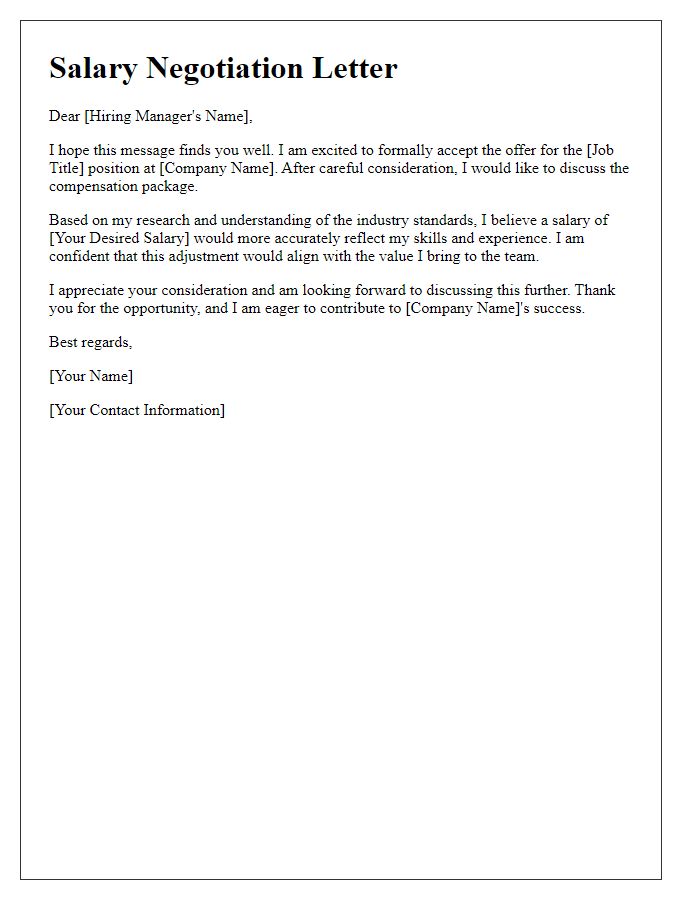
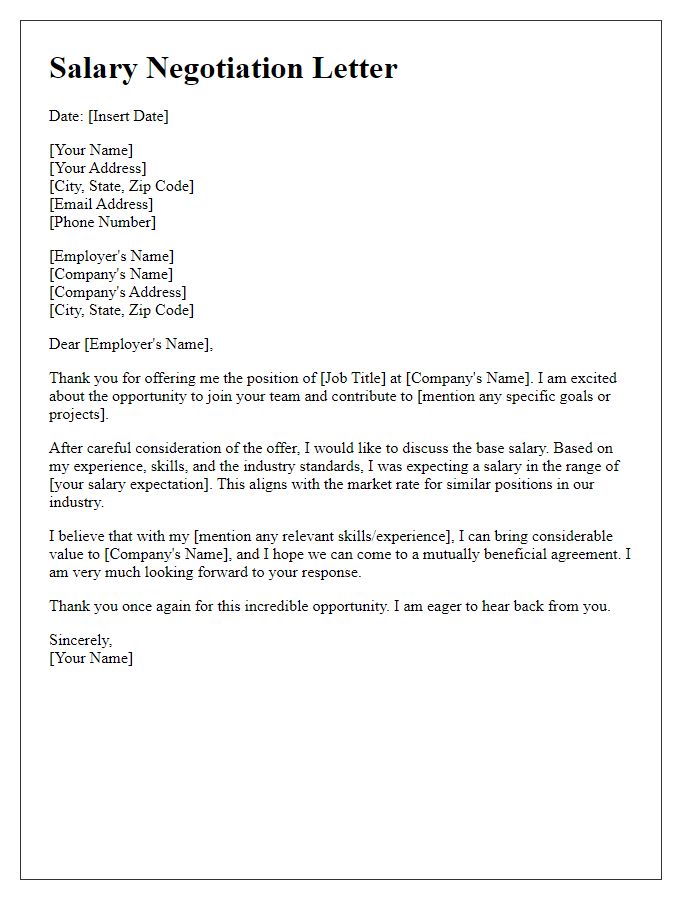
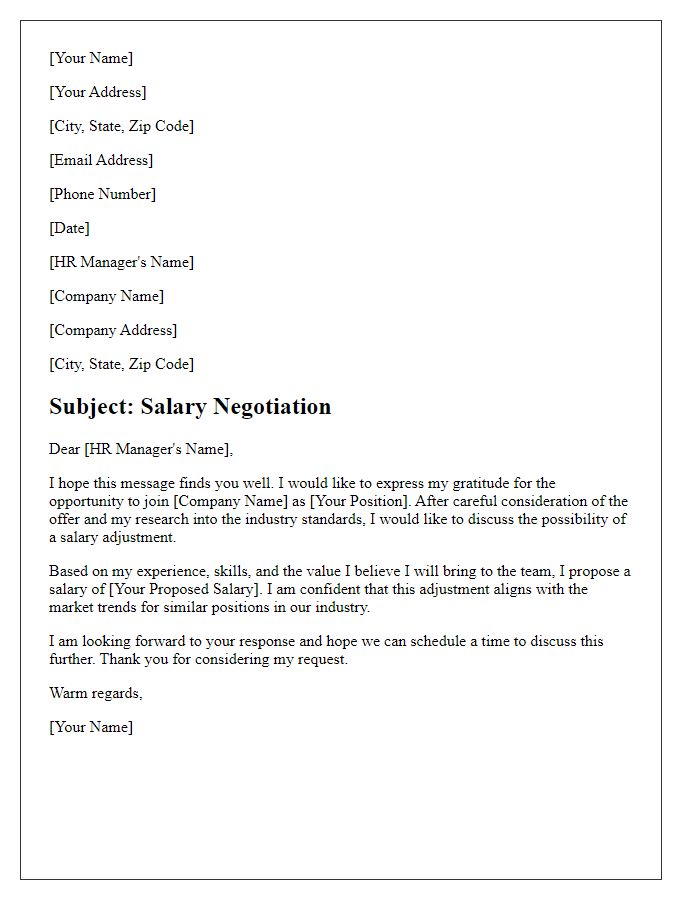
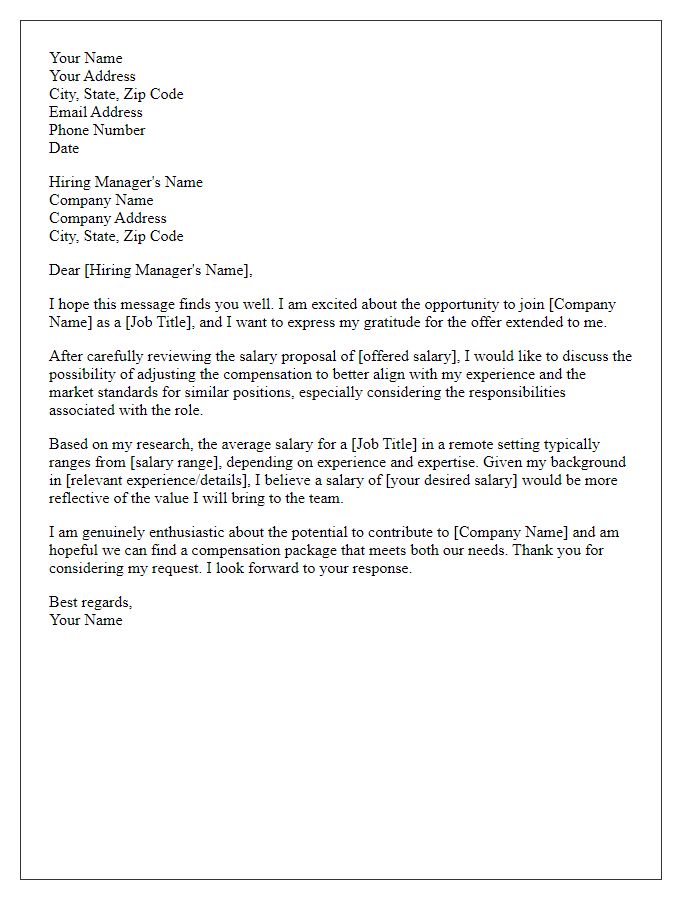
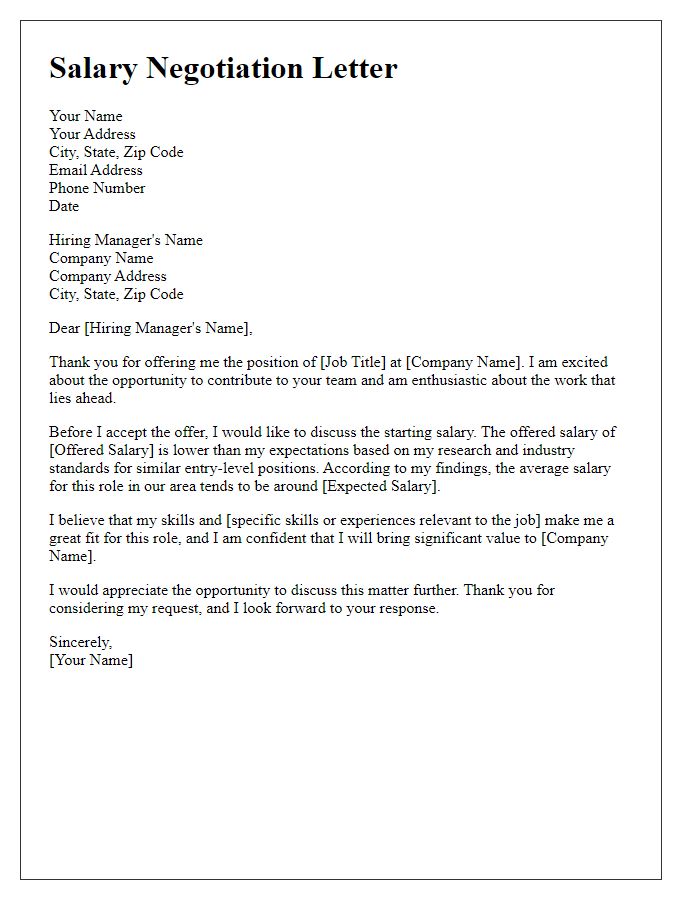
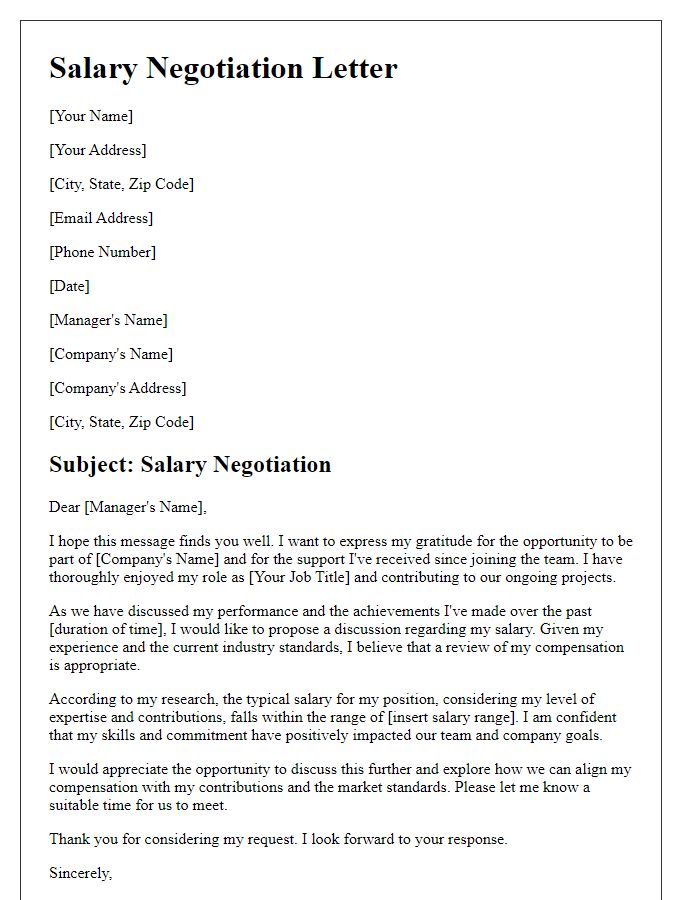
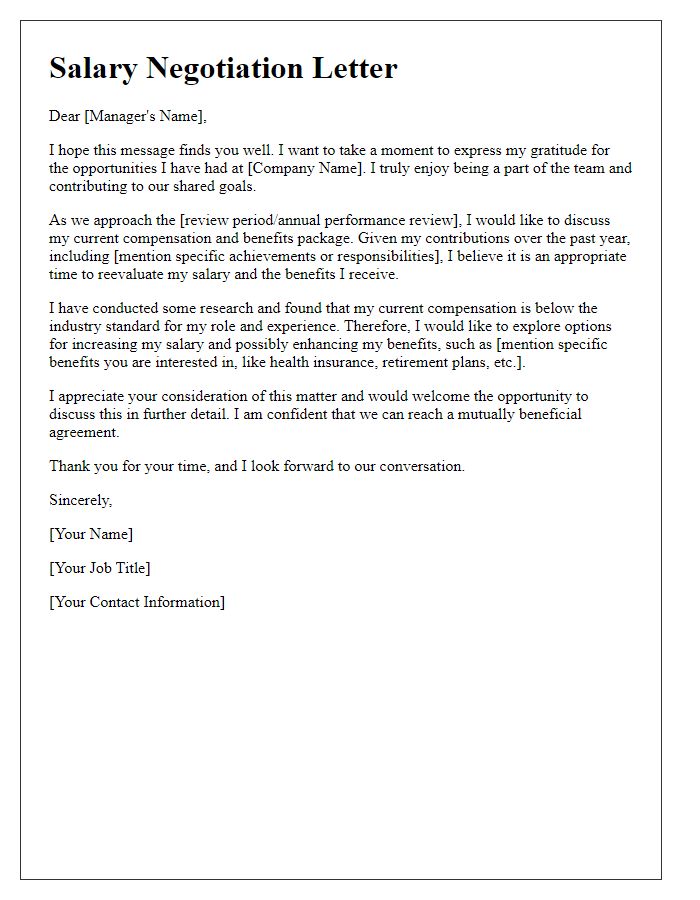
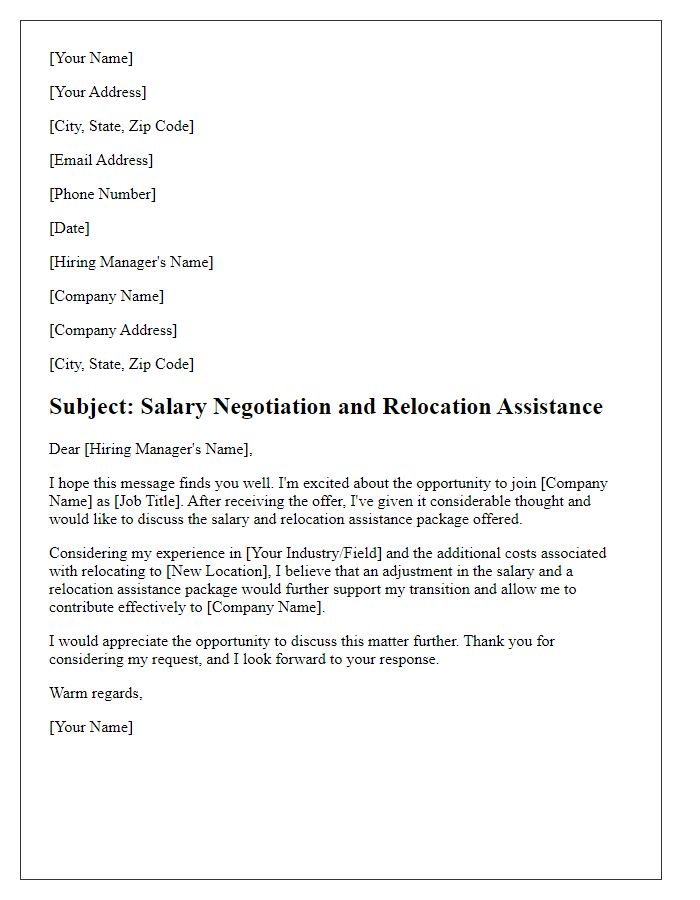
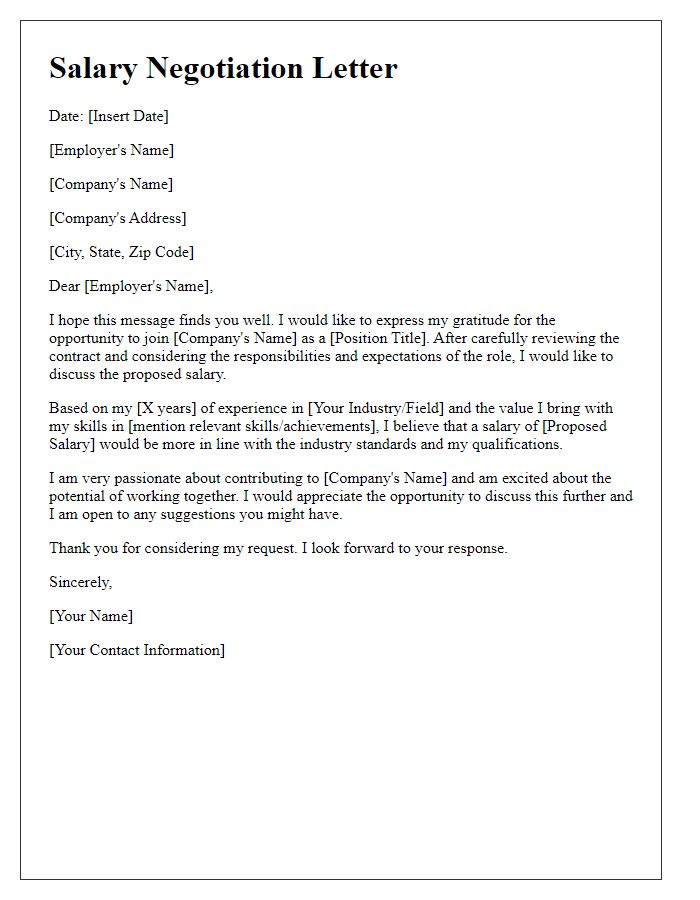
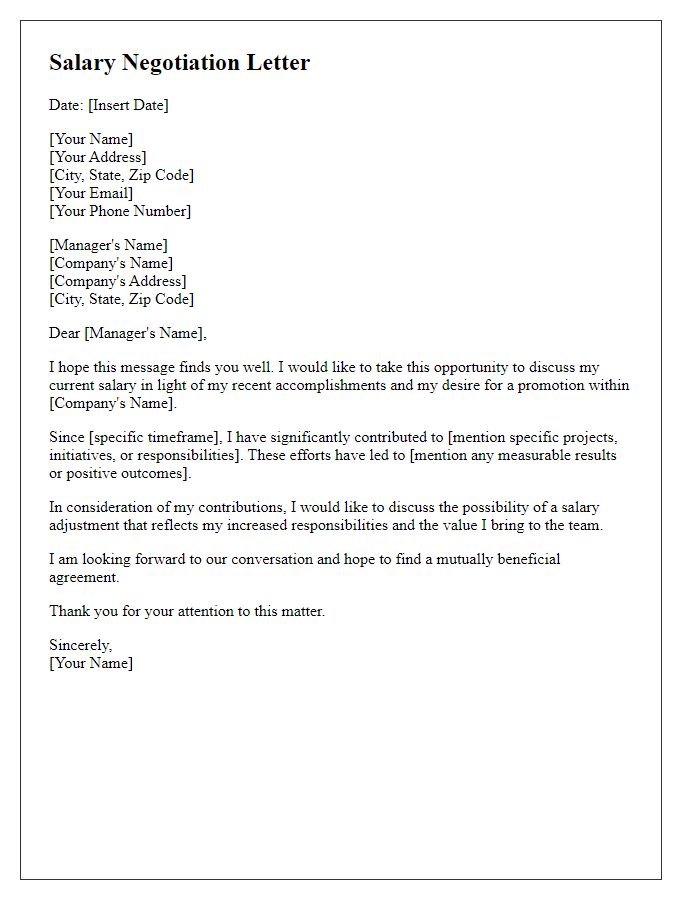


Comments